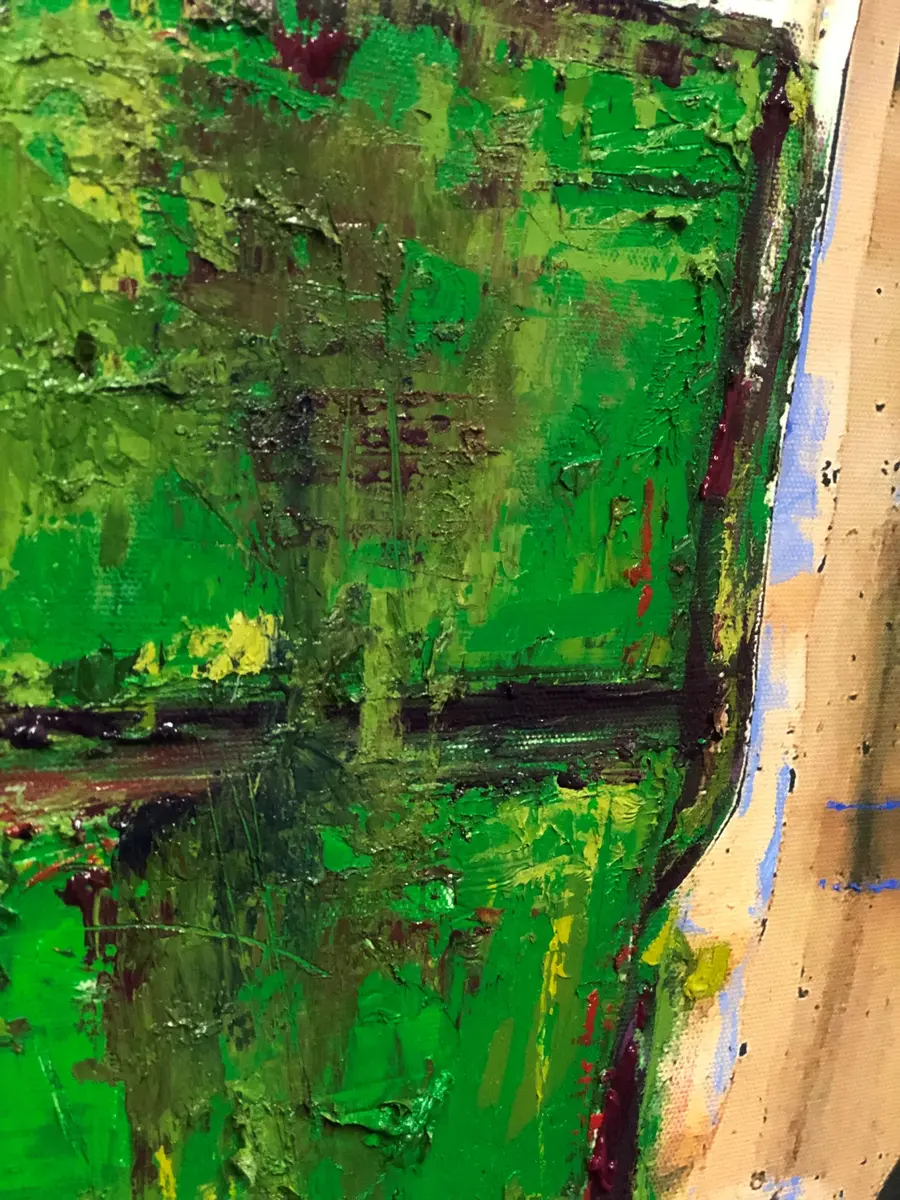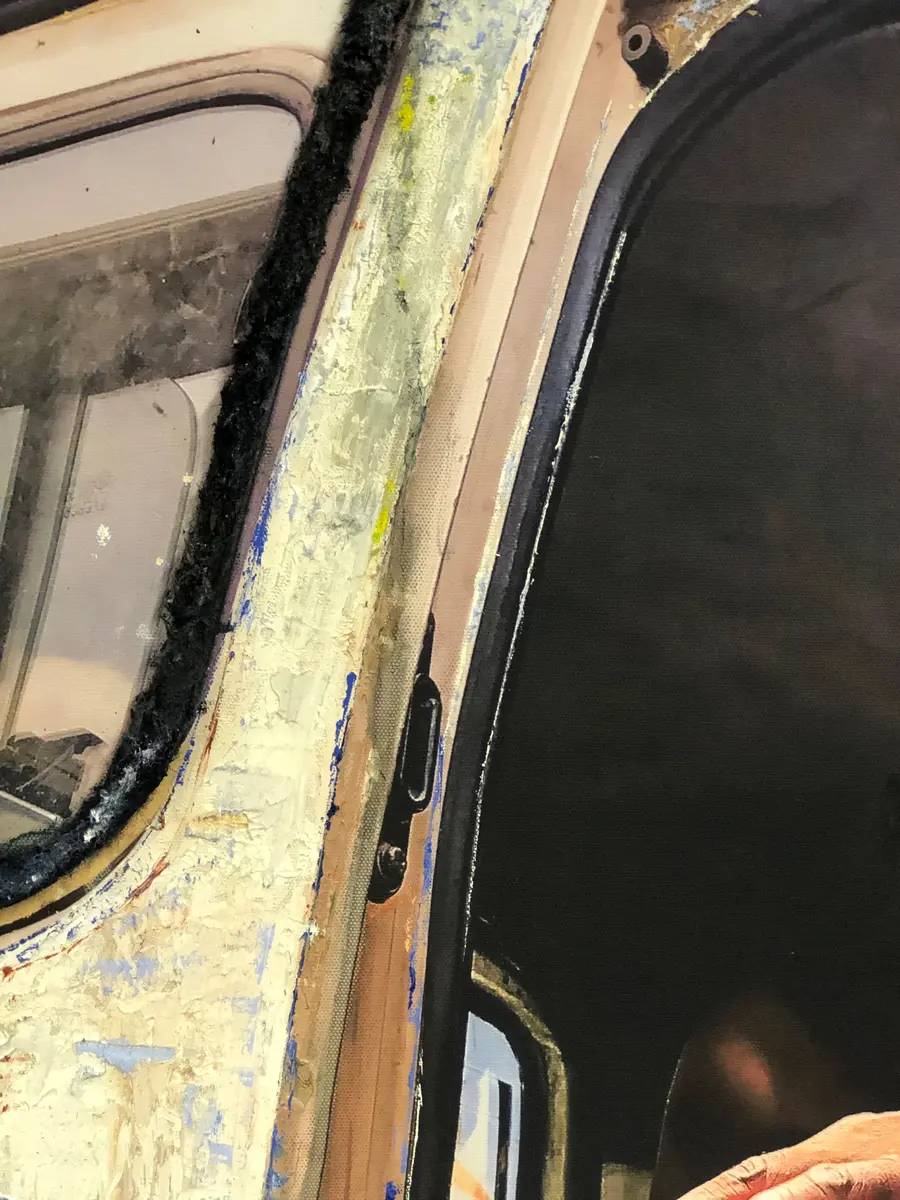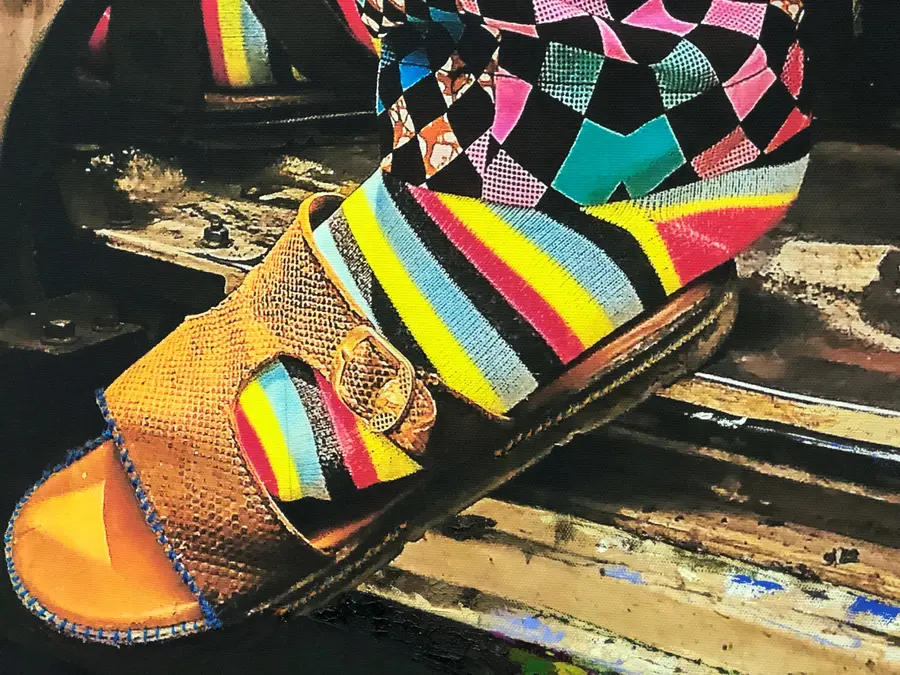Orry Shenjobi examines her photograph Wá, make I tell you something.
The piece Wá, make I tell you something incorporates 3 layered mediums: photography, paint, and recycled material. The foundational layer is a photograph shot in a Danfo bus in the heart of Isale Eko, Lagos, Nigeria at the end of the summer months during the ease of the first COVID-19 lockdown in 2020. The second layer is heavily textured oil paint, visible on the door frame of the bus. The final detailed layer consists of materials, such as cotton and thread that were embroidered onto the canvas to highlight various parts of the photograph. Isale Eko is very vivid and effervescent, but on the day this photo was taken, it was barren and silent, due to the first lockdown. I utilised vibrant colours to accentuate the vitality of the location when building my intricate textured layer. In this way, a transportive visual effect is created, placing viewers directly in the scene of the still shot photograph. The title translates to “Come, let me tell you something”, a common phrase in the vernacular, and indicative of the work’s soul.
When communicating in Yoruba, a vast number of gestures are necessary, allowing for minimum spoken contact between the speaker and the receiver. Tunji never said, 'Wá, make I tell you something,' but his body language and hand gesture implied that he was calling for attention and was about to speak his mind, almost as if he wanted a closer ear to hear his truth as his torso plunges forward and commands attention in the most aggressive yet vulnerable way. I had encountered these men having a casual yet heated discussion on the otherwise surprisingly quiet streets of Isale Eko. I greeted and joined the conversation.
The subjects are Tunji (left) and Samuel (right). Both bus drivers are juxtaposed, depicting the duality of self, enclosed within the vehicular mind. Tunji, intense and assertive, aired his frustrations regarding the pandemic and its lasting effects on his livelihood. At his boiling point, he kept repeating the desire to leave his home country and move to China, insistent that life would be better for him there and that the infectious disease did not exist (despite being told otherwise by Samuel). He believed it was all a ploy to get people like him off the streets. Samuel was laid back and easy-going, and made attempts to placate his friend, tempering him down with well-placed laughs, de-escalating smiles of reassurance, and a cool demeanour.
Wá, make I tell you something, depicts opposing yet symbiotic mindsets necessary for survival amidst turmoil. It depicts the story of all Tunji’s around the world, overwhelmed by frustration and distrustful of the social systems that “took food from the mouths of his children”. It depicts the story of all Samuel’s around the world, still beating on despite the chaos surrounding him, lest he lose himself. It depicts the story of unity, where grievances are heard, and support is offered.
Written by Orry Shenjobi.



